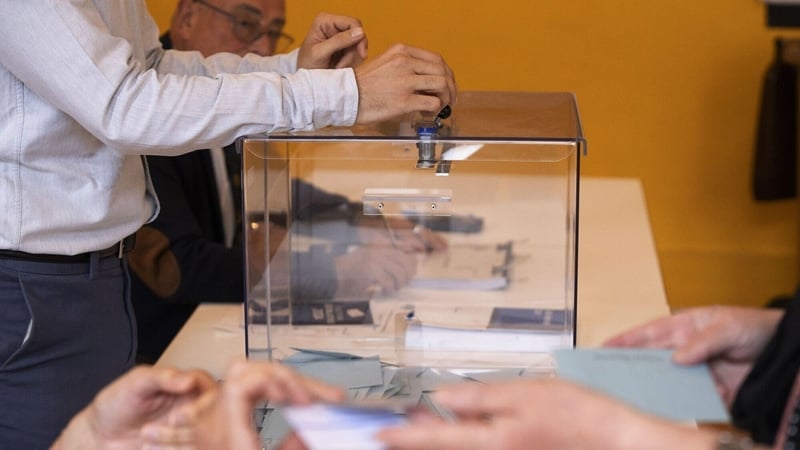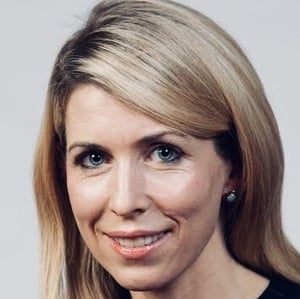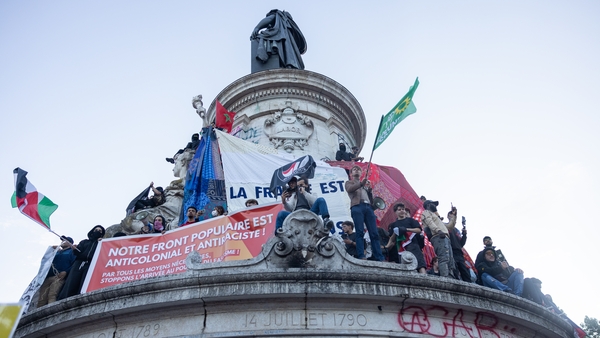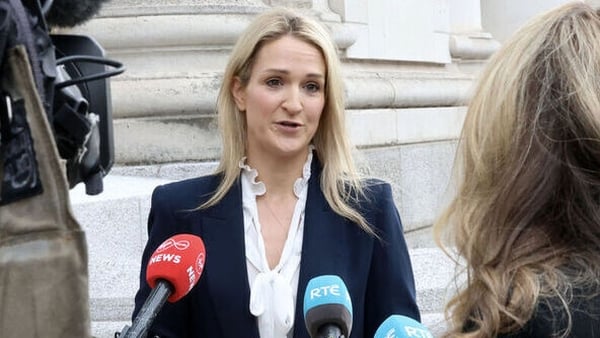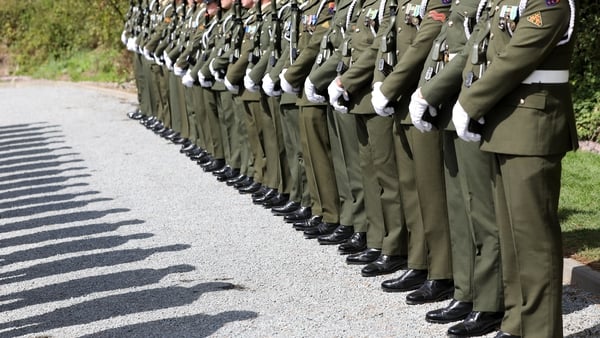People in Paris say they are not worried how the electorate in the capital will vote in the snap election, but they are scared about the impact of the surge in support for the far right across rural communities and other regions.
Legislative elections do not generally attract as much interest as presidential elections among French voters, but this time it has gripped the nation because of what is at play and who could emerge as the governing party.
While the latest polls suggest no party is likely to secure a majority, concerns have been voiced over what will happen if the National Rally takes the most seats in the National Assembly.
Read: Far right bids for power as France holds parliamentary elections
Outside a polling station in Place Gambetta, Rupa Chuhuan, a French-American citizen said she is extremely nervous ahead of tonight's results.
"As a dual national it does scare me that the French right would come into power as it does make me feel like I am less French and that my rights won't be protected even though they say they will be."
She said there are similar forces at play by the far right across the world, in drawing support, feeding into the cost of living crisis and gaining support from people who "don't feel understood" by the current politicians in power.
"I think there is this disconnect with power and they don't feel represented by the people in power and somehow they feel the extreme does listen to them," she said.
Another local resident who cast his vote early this morning said it is a really important day because of the impact "for all of the people in France".
He described how tensions have increased around this election with reports of racism and aggression after the first round of the election. "The second one may increase this feeling," he said.
He said the best solution for French people is to "try to fight the extreme right and make sure these people don't get this power and build something that will leave this danger out of this country".
A Parisian woman described her upset at how the country has "somehow" ended up in this position.
"I am a little sad about what will happen unfortunately," she said. "I would like everyone to think about this."
She said she remains hopeful as voting continues today in this high stakes election.
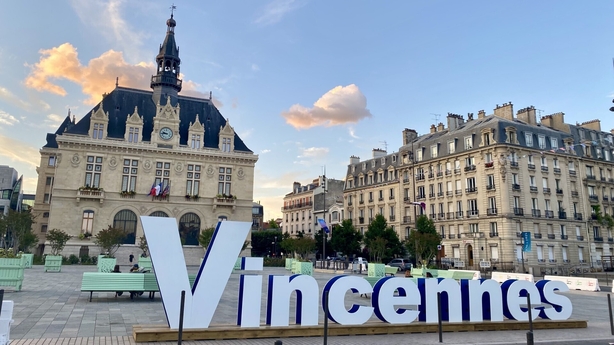
The warnings have been clear that Europe’s second largest economy is facing a possible shake up of traditional politics.
In Vincennes in the south-east of Paris, there are conversations about "significant changes" that could be imminent with calls for voters to come out "against the far right".
One shop owner on Rue due Midi said young people are not usually interested in politics but she said they must pay attention to what is at risk for France.
She also described that with an election campaign that has been "so rapid" people have generally not had much opportunity to familiarise themselves with candidates and party policies.
Some residents are aware of the risks associated with the ideologies of the far right and what it could mean for them.
One young woman described how a National Rally win would lead to a "France we would not know" as she described the dangers in particular for "people of colour, women and LGBTQ+ communities".
Others believe that, regardless of the result, there could be civil unrest.
"Divisions have already deepened since this snap election," said one local resident as he outlined "fears for the future".
There is consensus that the biggest change in the political landscape would be if Marine le Pen's National Rally did, as the polls projected, and secured the most seats.
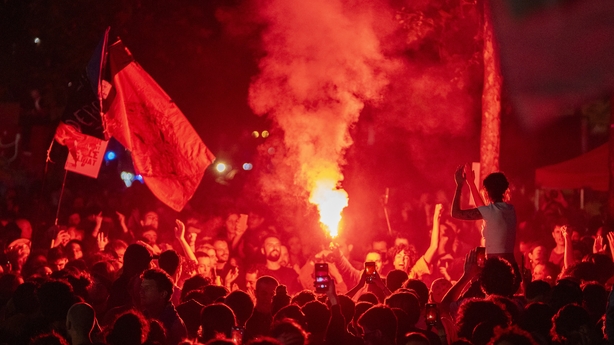
With one in three voters backing the party in the first round last Sunday, it solidified the success of a Euro-sceptic and anti-immigration party that was on the fringes of politics a decade ago.
While Ms Le Pen has tried to distance the party from its xenophobic past, the 55-year-old has also tapped into public despair over the cost of living with assurances of a better quality of life with her party at the helm.
This is clearly taking effect with indications it has broadened its voter base, to include people who would never have contemplated giving them their support before.
If the far right secures an absolute majority, the French president would be forced to enter a cohabitation with a National Rally candidate as prime minister.
That candidate would be Jordan Bardella, the 28-year protégé of Ms Le Pen who has experienced a meteoric rise in popularity. With 1.9 million followers on TikTok, he is the biggest influencer in French politics and has made an impression on young people.
His party has also painted the picture of a success story emerging from a childhood in an impoverished banlieue in Paris to a polished politician. In one of his last interviews during the campaign he said he was very confident ahead of tomorrow that people want to "turn the page on seven years of Macronism".
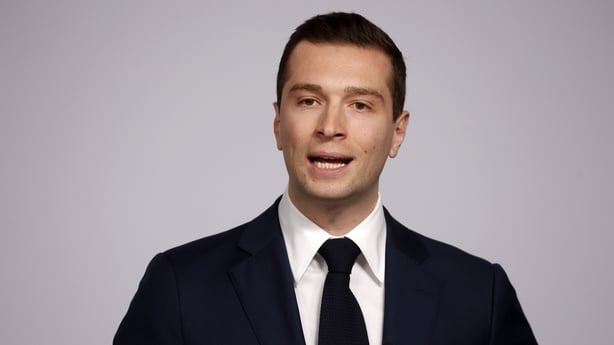
While less has been highlighted about the possibility of a New Popular Front success, it is also in contention.
Their alliance on the left with the slogan "Hope is here" was launched last month in response to the snap election and the awareness of the threat of a possible far right victory. It includes the hard-left, France Unbowed, and its leader, former presidential candidate Jean-Luc Mélenchon.
Despite their differences, Mr Macron and Mr Mélenchon have agreed on voting strategies to try and stop the far right from runaway success.
Some political analysts suggest this could pay off.
While the outcome is unclear, it’s largely expected that Mr Macron's party has been weakened.
His own popularity continues to nosedive.
The centrist leader is adamant that, regardless of the outcome today, he will stay on in his role as president until 2027.
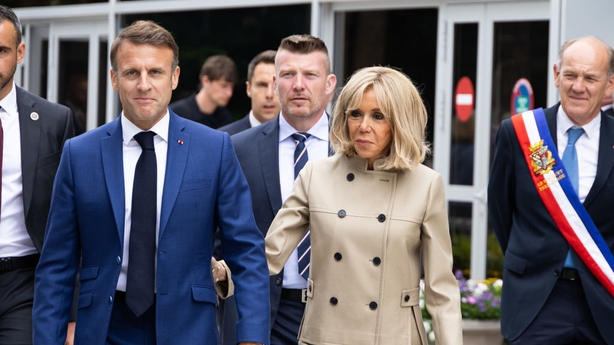
That role, in charge of foreign and defence policy, will remain unchanged but with a possible prime minister from a different political party it would pose challenges.
Across the EU there is also a sense of trepidation. While elections have been won by far right parties elsewhere, France is the second biggest EU economy and a big military power and it raises concern, for example, how much support Ukraine might have with a far right party at the helm. Ms Le Pen has also voiced her intent to challenge Mr Macron on his defence policy.
Political coverage across France over the last few weeks has speculated on how much damage Mr Macron has created for both his own reputation and the country by calling this snap election.
Some suggest he will be known as the "canard boiteux" or lame duck in the aftermath, with the prospect of a volatile situation if there is a hung parliament split between the far right and left.
